ການໃຈ້ແຍກໂດຍ "ປັບປຸງ"
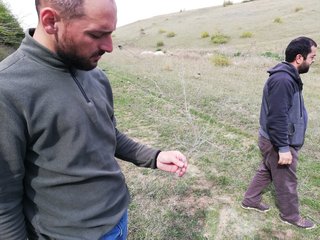
Participatory Grassland and Rangeland Assessment (PRAGA) [Georgia]
The Participatory Rangelands and Grasslands Assessment Methodology (PRAGA) is a rapid, cost-effective framework for the integrated assessment of rangeland ecosystems, incorporating diverse data sources and participatory approaches. PRAGA facilitates stakeholder engagement through consultations and workshops, underpinned by community-based mapping of grazing areas, land use dynamics, and trend analyses.
- ຜູ້ສັງລວມຂໍ້ມູນ:
- Nicholas Euan Sharpe
- First published:
- 2025-12-16 08:26
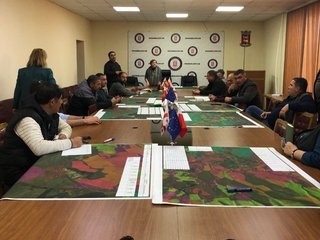
Municipal Pastureland Planning [Georgia]
The Municipal Pastureland Planning approach was developed collaboratively with key national and local stakeholders to establish a structured, evidence-based decision support framework for sustainable rangeland governance. This system consolidates and presents data from diverse stakeholder groups in a format fully compatible with the Land Degradation Neutrality Framework, ensuring that planning aligns with both environmental and socio-economic objectives.
- ຜູ້ສັງລວມຂໍ້ມູນ:
- Nicholas Euan Sharpe
- First published:
- 2025-12-16 08:26
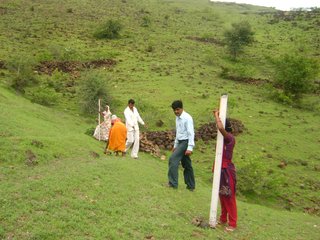
Participatory Net Planning for Sustainable Watershed Management [India]
Participatory Net Planning (PNP) is a practical methodology that actively engages landowners and local stakeholders in planning and implementing measures for land use, soil conservation, water harvesting, and biomass development. It aims to regenerate ecosystems and improve the sustainability of watersheds through site-specific resource management. PNP emphasizes the conservation, productivity enhancement, and sustainable use of natural and biological resources. It involves assessing the current condition and use of land, water, and vegetation, and preparing detailed plans—with estimated costs and timelines—to achieve the desired outcomes. In Participatory Net Planning (PNP), the term “Net” represents a complete and interconnected planning framework where every land parcel within a watershed is individually assessed and linked to the larger watershed system. It highlights a network-based approach that integrates soil, water, vegetation, and community needs, ensuring that interventions on one farm support resource conservation and productivity across neighboring and downstream lands. Overall, it signifies a holistic and coordinated system where all stakeholders and resources are planned collectively for sustainable and long-term watershed management.
- ຜູ້ສັງລວມຂໍ້ມູນ:
- Arun Bhagat
- ການສ້າງ:
- 2025-10-07 10:31
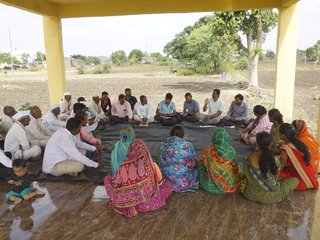
Ecosystem based Adaptation (EbA) through Farmers’ Collectives for Sustainable Management of Natural Resources [India]
The Ecosystem-based Adaptation (EbA) with Farmer Collective (henceforth Farmer Producer Organisations (FPOs)) approach strengthens farmers’ resilience to climate change by integrating sustainable water- and land management, biodiversity enhancement and resources governance within farmers’ collectives. Implemented in semi-arid regions of Maharashtra and Telangana, the approach combines capacity building, improving soil health, through women-led green business aiming at enabling eco-sensitive and economically viable FPOs.
- ຜູ້ສັງລວມຂໍ້ມູນ:
- Arun Bhagat
- First published:
- 2025-11-30 12:40
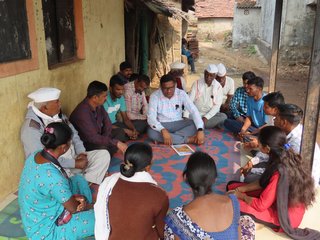
Capacity Building Process for Participatory Watershed Development [India]
The Capacity Building Process for Participatory Watershed Development is a structured approach to strengthen the technical, managerial, and social skills of Non-Governmental Organizations (NGOs), Partner Implementation Agencies (PIAs), and Village-level Institutions (VIs). It includes orientation, training, participatory tools, mentoring, exposure visits, monitoring, and institutionalization. The process enhances competencies, fosters creativity and confidence, promotes community ownership, and ensures effective, sustainable planning, implementation, and management of watershed-based natural resource management and climate-resilient interventions.
- ຜູ້ສັງລວມຂໍ້ມູນ:
- Arun Bhagat
- ການສ້າງ:
- 2025-10-09 11:35
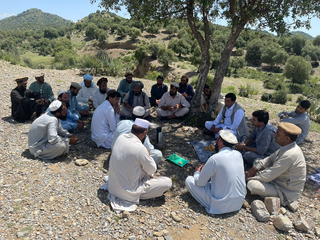
Stakeholder collaboration for building Learning Site for landscape restoration [Afghanistan]
To raise awareness and ensure clear role delineation, a series of consultations were held with the local community, the Forest Management/Rangeland Management (FM/RM) association, and other key stakeholders. Memorandum of Understanding (MoU) that formally outlined the roles and responsibilities of each party was signed. Additionally, the FM/RM association issued a letter of guarantee to support the establishment of a learning site dedicated to promoting best practices in forest and rangeland management. (e.g. cumin) through community’s own contributions.
- ຜູ້ສັງລວມຂໍ້ມູນ:
- Mohammad Arif
- First published:
- 2025-10-17 14:46
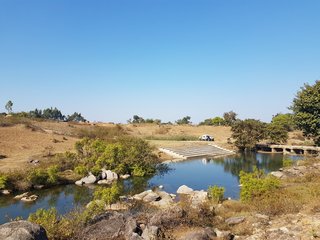
Experiential Learning Tools for Sustainable Water Management [India]
The project “Scaling up experiential learning tools for sustainable water governance in India” aimed at enhancing sustainable water management at scale by improving the capacities of 1,500 rural communities covering 105,000 households directly and 2,000 communities covering 140,000 households indirectly in six Indian states to manage water more sustainably. This was achieved through experiential learning from collective action games, structured community debriefings, and participatory water planning tools that contribute to greater awareness and improved governance, inducing behavioural change toward more sustainable water governance and management. The work was jointly conducted by the Foundation for Ecological Security, India (FES), the International Food Policy Research Institute (IFPRI) and the International Crops Research Institute for the Semi-Arid Tropics (ICRISAT).
- ຜູ້ສັງລວມຂໍ້ມູນ:
- Vishwambhar Duche
- First published:
- 2025-03-26 23:13
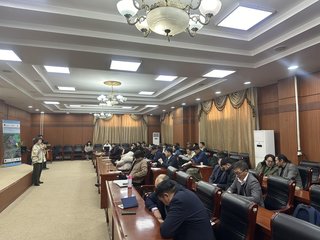
Mentorship programme on conservation agriculture [Mongolia]
The Approach aims to ensure the sustainability of the agricultural sector by training and mentoring young farmers in conservation agriculture to improve soil fertility and health and maintain productivity.
- ຜູ້ສັງລວມຂໍ້ມູນ:
- Otgontsetseg Davaanyam
- First published:
- 2024-06-26 18:52
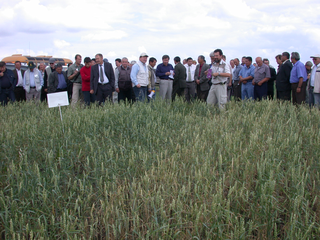
Awareness Raising for SLM Using Conservation Agriculture [Kazakhstan]
Raising awareness and strengthening the capability and skills of farmers, agriculture specialists and researchers in developing and adoption resource-saving, profitable and environmentally friendly cereal production through Conservation Agriculture practices.
- ຜູ້ສັງລວມຂໍ້ມູນ:
- Kulyash Iskandarova
- First published:
- 2020-03-10 09:39
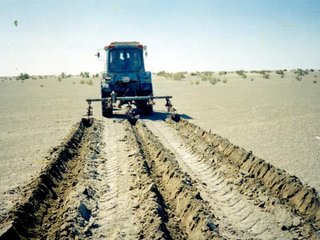
The approach of groove fastening sandy loam and sandy soils of the Aral sea's drained bottom [Kazakhstan]
The approach of groove fastening sandy-loam and sandy soils of the Aral sea's drained bottom
- ຜູ້ສັງລວມຂໍ້ມູນ:
- Vladimir Kaverin
- First published:
- 2017-07-17 15:04
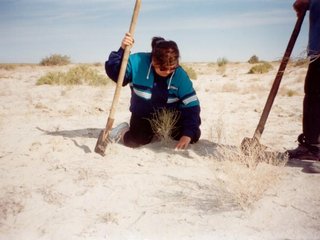
Principle of the excavated disposition of phytomeliorants on a pasturable lands of desert zone [Kazakhstan]
Principle of the excavated disposition of phytomeliorants on a pasturable lands of deserted zone of the Kazakhstan with the purpose of accumulation of an additional moisture and protection of territory against wind erosion
- ຜູ້ສັງລວມຂໍ້ມູນ:
- Unknown User
- First published:
- 2017-07-17 15:21
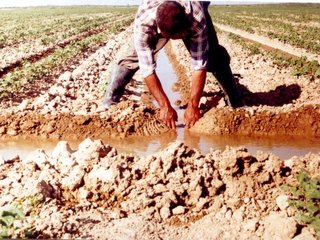
Watering through furrow [Kazakhstan]
Watering through furrow
- ຜູ້ສັງລວມຂໍ້ມູນ:
- Unknown User
- First published:
- 2017-07-17 15:39
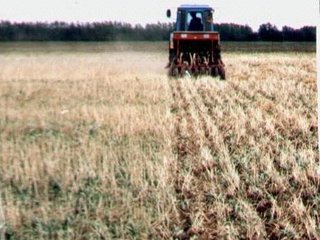
Crop on the stubble background [Kazakhstan]
Stubble crop for cultivation of grain crops (spring wheat).
- ຜູ້ສັງລວມຂໍ້ມູນ:
- Ervin Gossen
- First published:
- 2017-07-17 16:04
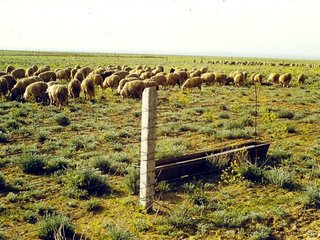
Creation of sowed pastures from subshrubs and forbs able to use maximally the scanty water resources [Kazakhstan]
Increase of use effectiveness of limited resources of soil moisture in desert with sowing xerophyte fodder plants
- ຜູ້ສັງລວມຂໍ້ມູນ:
- Irina Skorintseva
- First published:
- 2017-07-17 17:38
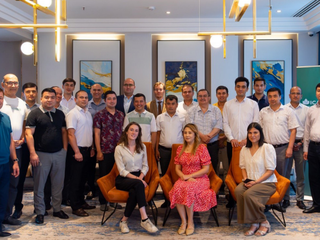
A Decision Support Tool for integrating stakeholder perspectives through WEFE Nexus [Uzbekistan]
The Decision Support Tool helps decision-makers prioritize sustainable land management practices using the Water-Energy-Food-Ecosystem Nexus, fostering collaboration, facilitating social learning, and balancing diverse stakeholder interests.
- ຜູ້ສັງລວມຂໍ້ມູນ:
- Joren Verbist
- First published:
- 2024-11-28 11:40
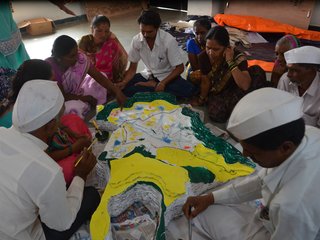
Participatory Understanding of Groundwater Dynamics: Threats and Responsive Management [India]
CoDriVE-VI is a participatory approach that integrates local knowledge with scientific data through 3D visual modelling to assess groundwater vulnerability and support sustainable, community-based groundwater management. It overlays surface and subsurface features, enabling villagers to visualize aquifer systems and develop informed water use plans.
- ຜູ້ສັງລວມຂໍ້ມູນ:
- Pratik Ramteke
- First published:
- 2025-06-16 09:27
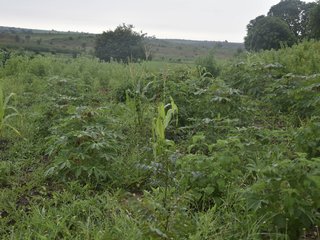
Approche 4L (Land management, social Learning, resilient Landscape, sustainable Livelihoods) pour la restauration des paysages et des écosystèmes forestiers [Madagascar]
L’approche 4L intègre la gestion des terres, l'apprentissage social, la résilience des paysages et les moyens de subsistance durables pour une gestion équilibrée des ressources naturelles. Elle favorise une gouvernance participative et adaptative afin d’assurer la durabilité environnementale et socio-économique.
- ຜູ້ສັງລວມຂໍ້ມູນ:
- Dimby RAHERINJATOVOARISON
- First published:
- 2025-05-08 08:21
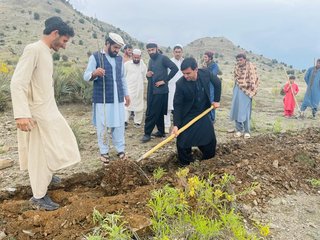
Community based reforestation initiatives to restore degraded forest and rangeland [Afghanistan]
Community-driven reforestation initiative that involves awareness-raising, capacity building, feasibility analysis, and collaboration among various stakeholders to address land degradation and promote sustainable forest and rangeland management
- ຜູ້ສັງລວມຂໍ້ມູນ:
- Mohammad Aslam Hasand
- First published:
- 2025-03-23 08:17
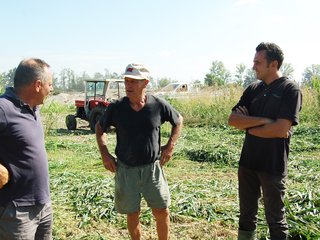
Reconstitution of Soils Approach [Italy]
Reconstitution of soils is a patented pedotechnology that brings benefits to degraded soils. Simultaneously, it raises awareness of the potential of restoring soil fertility through recycling. The approach starts with the identification of the soil issue, and the technology is then planned, implemented and promoted through a consortium.
- ຜູ້ສັງລວມຂໍ້ມູນ:
- Chiara Cassinari
- First published:
- 2025-04-29 15:05
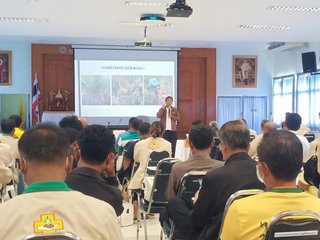
EXTENSION OF SUNN HEMP AS A SOIL AMENDMENT IN SALINE SOILS [Thailand]
An outreach programme aims to educate farmers about the benefits of ploughing rice stubble into the soil and incorporating green manure crops such as sunn hemp - as well as other sustainable practices. Groups of farmers are formed, and they are assisted by various organisations including the Land Development Department and volunteer "soil doctors".
- ຜູ້ສັງລວມຂໍ້ມູນ:
- Laksamee Mettpranee
- First published:
- 2025-03-21 10:54
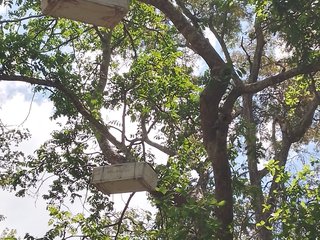
BEEKEEPING FOR CONSERVATION OF NATURAL TREES AND FOREST RESERVES [Tanzania]
Beekeeping is an activity which involves maintenance of bee colonies by using man-made hives within a selected forest area which provides the required feed and habitat resources required by bees. Through beekeeping, trees are conserved as they provide flowers hence ensuring feeds for bees. Beekeeping is used as an approach of protecting forest reserves against encroachments. Bee products, produced within the value chain, improve the livelihoods of beekeepers and communities at large while conserving the environment at the same time.
- ຜູ້ສັງລວມຂໍ້ມູນ:
- LINDA SHIO
- First published:
- 2025-01-22 17:13
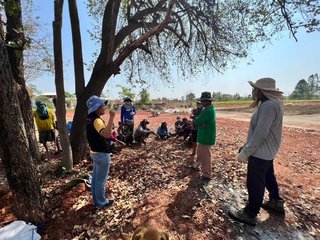
The soil doctor network for integrated farming [Thailand]
A “soil doctor” network in Khon Kaen province has transformed saline areas previously dedicated to rice cultivation into sustainable, integrated farming systems.
- ຜູ້ສັງລວມຂໍ້ມູນ:
- Areerat Wangkaew
- First published:
- 2025-01-13 09:32
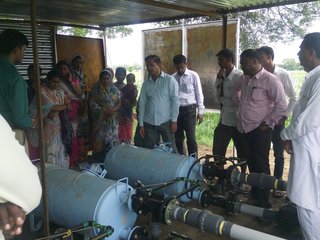
Group micro-irrigation (GMI) [India]
The group micro-irrigation (GMI) approach encourages farmers to share water more sustainably by facilitating cooperative management of irrigation resources. The aim is to improve water security and agricultural productivity by promoting climate-resilient agricultural practices and addressing the behavioural factors that influence water resource sharing.
- ຜູ້ສັງລວມຂໍ້ມູນ:
- Pratik Ramteke
- First published:
- 2024-11-29 11:56
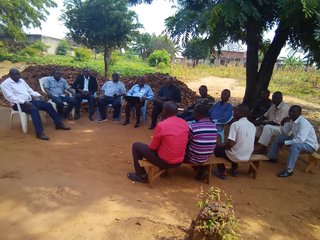
Groupe de plaidoyer de l'approche des technologies de conservation et de la restauration durable des terres. [Burundi]
Ajoutons qu'un cadre de concertation fut adopté et mise en place pour accélérer l'adaptation, la restauration prometeuse à la bonne concervation des sols. Elle sert aussi à contribuer à l'accélération des bonnes pratiques agricoles et système des productivités.
- ຜູ້ສັງລວມຂໍ້ມູນ:
- RUGONDERA Yves
- First published:
- 2024-11-24 15:52
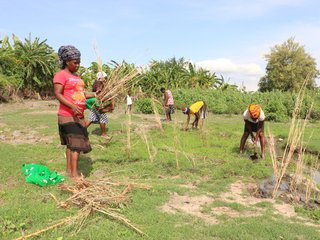
Integrated Wetlands Biodiversity Conservation Project [Zimbabwe]
The integrated wetlands biodiversity conservation project aims to restore wetlands and associated biodiversity. The approach strengthens the resilience of neighbouring marginalized groups to climate change through developing lifelong skills and providing livelihoods support.
- ຜູ້ສັງລວມຂໍ້ມູນ:
- Kalulu Mumpande
- First published:
- 2024-11-22 12:53
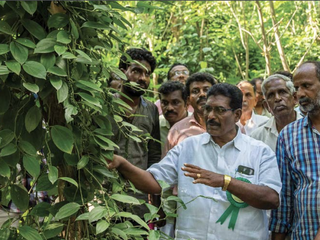
Conscious Planet - Save Soil’s Farmer Training and Handholding Approach [India]
The approach focuses on supporting farmers to increase productivity by increasing soil biology and organic matter content, primarily through plant residue and animal waste. Awareness and advocacy are followed by training programs and support for adopting regenerative agricultural practices.
- ຜູ້ສັງລວມຂໍ້ມູນ:
- Praveena Sridhar
- First published:
- 2024-11-14 16:16
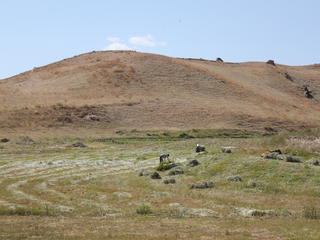
Pasture inclination used for developing grazing plan [Tajikistan]
In this approach the inclination of pasture land and its effect on the spread of sun and shadow is used to identify different periods for grazing. This simple approach will raise awareness and provides biological aspects in pasture management. In this approach the vegetation cover of the pasture is linked to the position of the sun. This is specific to mountain areas, where in one location vegetation periods can differ in two spots although they are in the same location.
- ຜູ້ສັງລວມຂໍ້ມູນ:
- Askarsho Zevarshoev
- First published:
- 2018-06-08 13:41
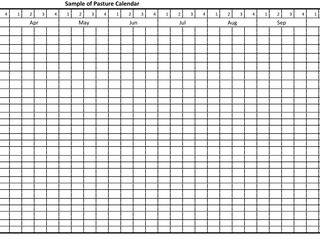
Pasture Calendar [Tajikistan]
Pasture calendar services the PUU as part of the implementation of the plan with a specific timeframe and activities. It helps communities in designing intervention with regard to the need of agreed activities in the calendar.
- ຜູ້ສັງລວມຂໍ້ມູນ:
- Askarsho Zevarshoev
- First published:
- 2018-06-08 13:33
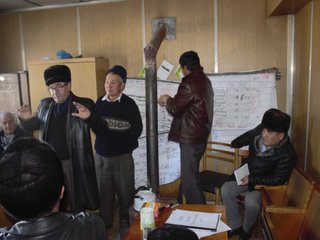
Pasture and Livestock Management Plan [Tajikistan]
"Pasture and Livestock Management Plan" is a participatory approach which is guiding pasture users, members of Pasture User Unions and Pasture User Groups to develop their action plan on pasture and livestock management. The approach brings together stakeholders, who are involved at any stage in pasture management or can contribute to or impede the implementation of the pasture livestock management plan.
- ຜູ້ສັງລວມຂໍ້ມູນ:
- Askarsho Zevarshoev
- First published:
- 2018-06-08 13:33
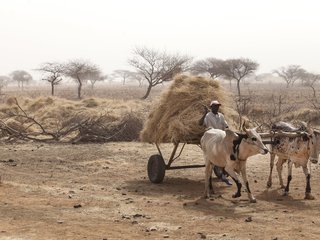
Community participation in large-scale land restoration for Africa’s Great Green Wall programme [Niger]
The Food and Agriculture Organization of the United Nations (FAO) has been using a participatory approach to implement large-scale restoration of degraded land in the Sahel. Communities have been central to the programme. In the framework of the Great Green Wall initiative, adapted and useful native tree species, shrubs, and fodder grasses are planted in agro-sylvo-pastoral land. This is response to community needs and preferences while ensuring that the species and varieties are all ecologically suitable.
- ຜູ້ສັງລວມຂໍ້ມູນ:
- Vivian Onyango
- First published:
- 2018-04-24 10:17
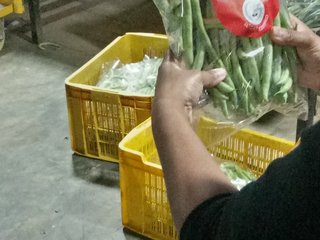
Private-public partnership to promote Sustainable Land Management and Good Agricultural Practices among vegetable growers [Sri Lanka]
A private-public partnership overcomes constraints that vegetable farmers encounter when adopting novel SLM technologies and Good Agricultural Practices. The private sector helps with marketing, value addition, certification, and financial support. The public sector fulfils farmer training needs through (for example) Farmer Field Schools using digital platforms.
- ຜູ້ສັງລວມຂໍ້ມູນ:
- Head Soil Science
- First published:
- 2022-05-10 10:05
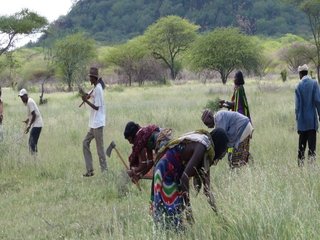
Pastoralist field schools [Ethiopia]
Pastoralist field schools improve livelihoods and resilience of pastoral communities through a process of hands-on experimental and participatory learning. They are "schools without walls" that introduce good agricultural and marketing practices while building on local knowledge. The PFS approach builds heavily on the basic principles of discovery based learning to address a wide range of issues affecting pastoral livelihoods.
- ຜູ້ສັງລວມຂໍ້ມູນ:
- Giacomo de' Besi
- First published:
- 2018-03-15 17:42
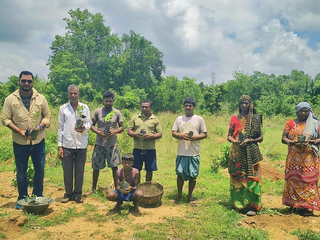
Community-led participatory and self sustainable land restoration in India [India]
A community-led participatory approach is being implemented in West Bengal to revive and regenerate a broken and degraded landscape through sustainable land management. Local people take the lead in both action and the development of a long-term management plan.
- ຜູ້ສັງລວມຂໍ້ມູນ:
- DIYA BANERJEE
- First published:
- 2024-08-21 10:53
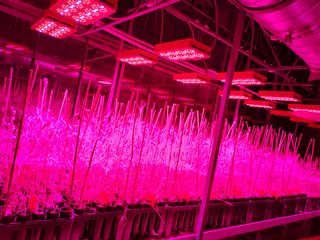
Speed Breeding Platform [Morocco]
Improving crop varieties is crucial for food security and climate resilience, but traditional methods are slow and expensive. The Speed Breeding Platform shortens breeding time substantially, enhances quality, and relies on strong partnerships between NARES and CGIAR centers.
- ຜູ້ສັງລວມຂໍ້ມູນ:
- Joren Verbist
- First published:
- 2024-07-23 11:43
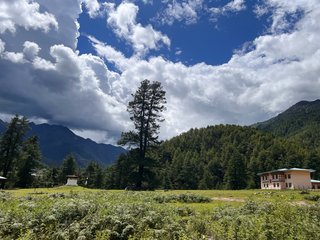
Sacred Groves as Informal Protected Areas [Bhutan]
A sacred grove is considered to be the home of the Local Deity of a region and is revered and protected by the people with respect and dedication. Here, a sacred grove of trees and undisturbed ground surround a majestic blue pine that is believed to be more than 350 years old.
- ຜູ້ສັງລວມຂໍ້ມູນ:
- Karma Wangdi
- First published:
- 2024-04-01 17:13
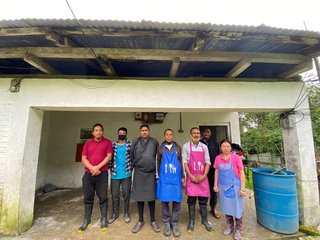
Darla Dairy Cooperatives [Bhutan]
The Darla dairy cooperative is an example of where farmers come together to form collective organizations for production, collection, transportation, processing, and marketing of milk and dairy products. These are business models operated as member-owned and member-controlled organizations.
- ຜູ້ສັງລວມຂໍ້ມູນ:
- Karma Wangdi
- First published:
- 2024-04-01 17:13
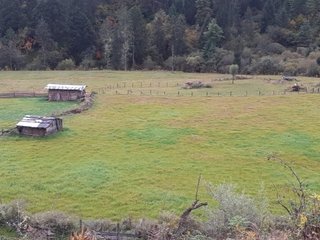
Improved Pasture Development [Bhutan]
The improved pasture development approach focuses on enhancing pasture productivity, which is managed sustainably for grazing. Livestock productivity depends greatly on improved pastures. It is very important to manage pastures to support the livelihoods of rural communities in Bhutan.
- ຜູ້ສັງລວມຂໍ້ມູນ:
- ONGPO LEPCHA
- First published:
- 2024-02-28 17:35
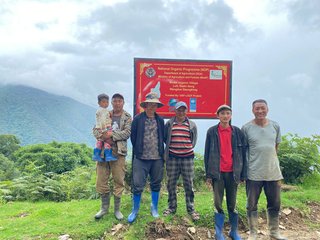
Model Village Approach to Scale out Organic Agriculture [Bhutan]
Organic agriculture includes a variety of farming systems that advance the sustainable production of food and fibres, prioritizing human health, and environmental, social, and economic aspects. The main objective of the model village approach is to promote the commercialization of organic farm produce.
- ຜູ້ສັງລວມຂໍ້ມູນ:
- Karma Wangdi
- First published:
- 2024-04-03 14:01
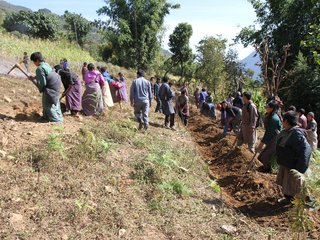
Community Mobilization for SLM Interventions [Bhutan]
Community mobilization in implementing sustainable land management technologies is indispensable in engaging the community to identify their priorities, resources, needs and solutions. It ultimately promotes bottom-up participation and fosters accountability.
- ຜູ້ສັງລວມຂໍ້ມູນ:
- Nima Dolma Tamang
- First published:
- 2024-03-01 10:26
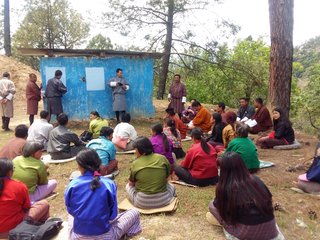
Participatory SLM Action Planning [Bhutan]
Participatory SLM action planning is an approach that identifies community-based and land-based issues and challenges, establishes the root causes, and finds out mitigation measures to address the issues for enhancing rural livelihoods.
- ຜູ້ສັງລວມຂໍ້ມູນ:
- Karma Wangdi
- First published:
- 2024-04-01 17:13
- . . .